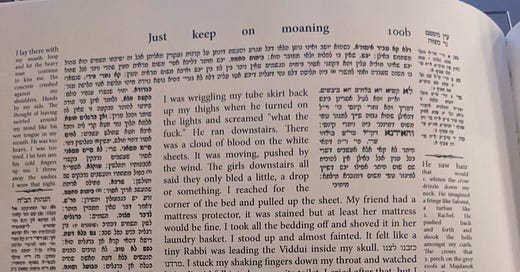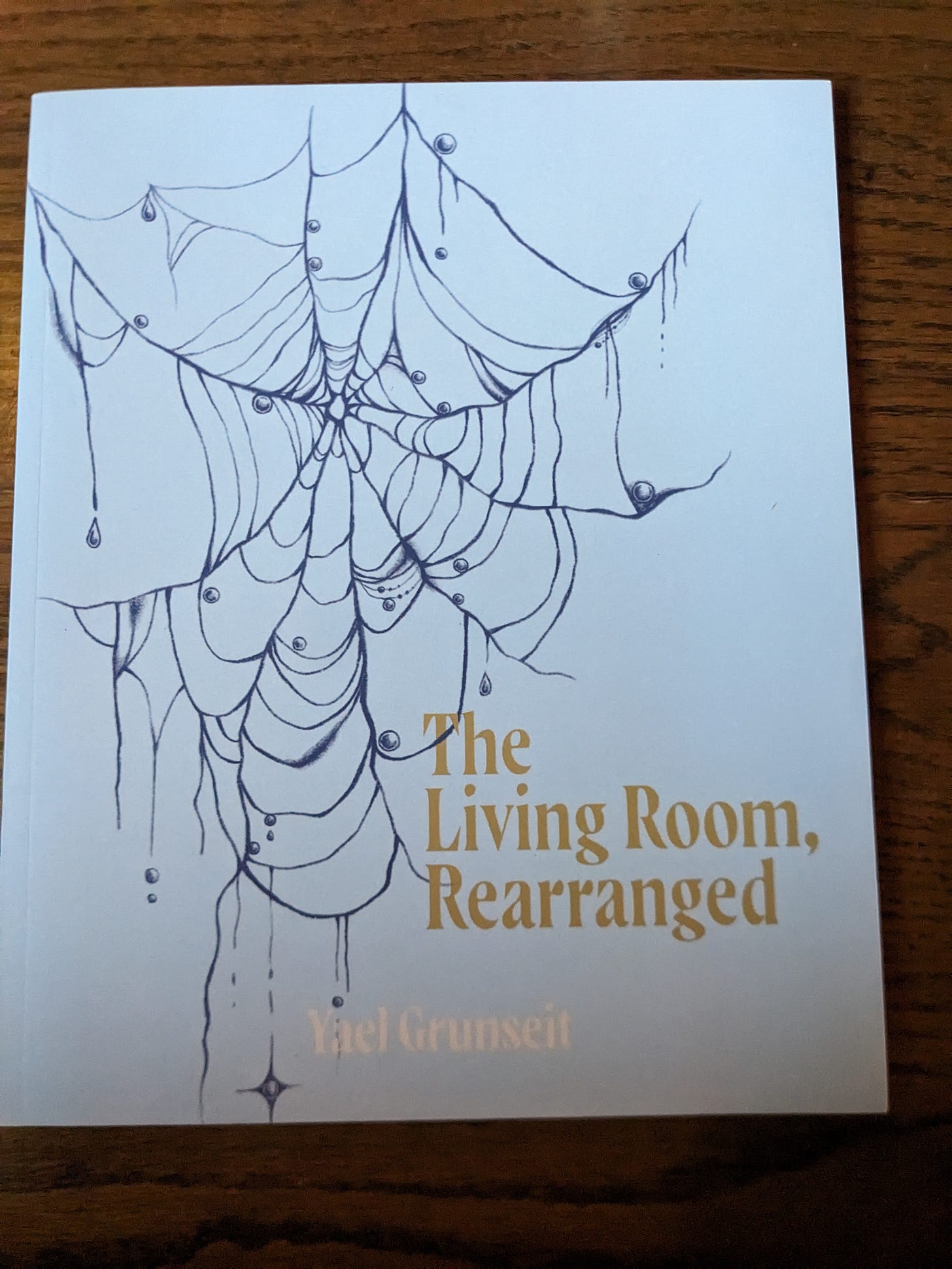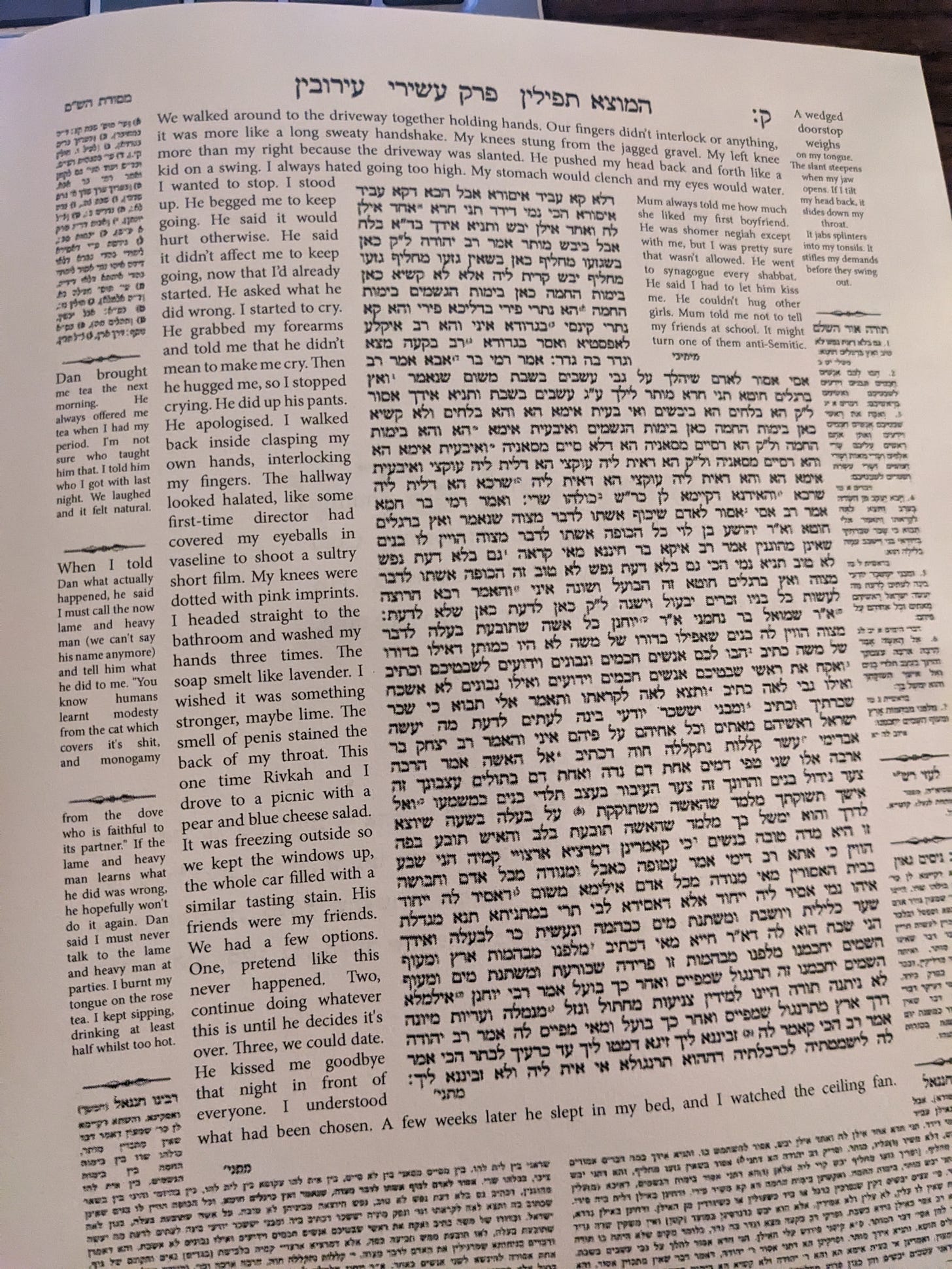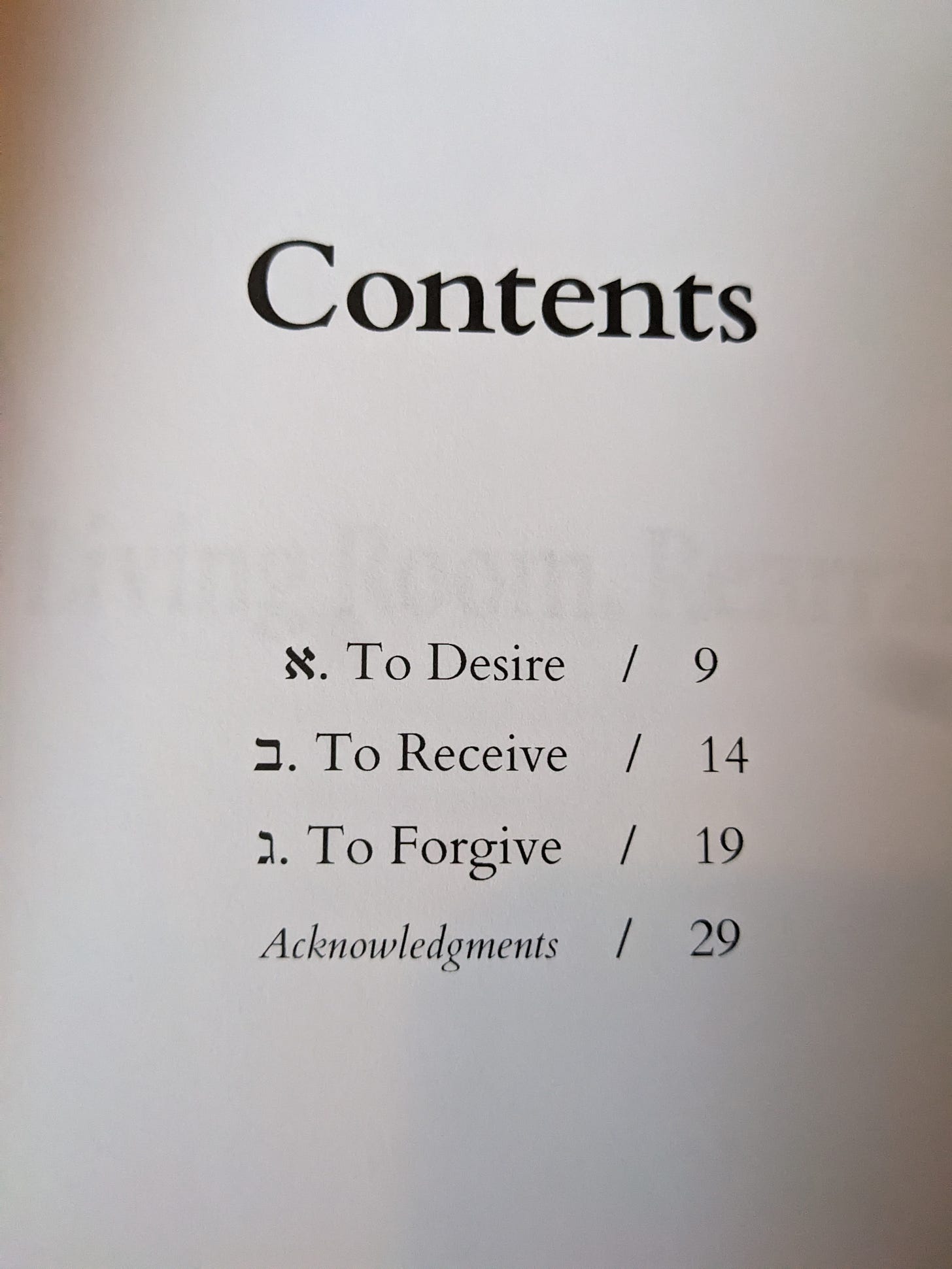Sometimes a book’s arrangement is deeply exciting—at least that was the thought that ran through my head as I leafed through The Living Room, Rearranged, a lovely debut chapbook of poetry by a young Australian writer that is arranged like pages of the Talmud.
The book’s visual presentation and its content are all about finding a place, as a young woman, within Jewish text and tradition. But the layout—which puts contemporary poetry into actual Talmud pages—challenges the assumptions made by some of the Talmudic passages quoted, which are often about the role of women.
And yes, “I was wriggling my tube skirt back up my thighs” appears here in a “Talmudic” section titled “Just keep on moaning.” Notice that some of the Aramaic remains in place, even as the skirt doesn’t.
In some places, the original main text of the Talmud is reproduced as is, but what the poet adds = her own commentary. Now might be a good time to point out that all the commentators whose words are featured in the Talmud are men.
This is the page facing “Just Keep on Moaning.” It is from a section about finding tefillin, or phylacteries. In Orthodox Jewish tradition, tefillin is something exclusively for men.
Look closely to see what is the Talmud, and what is Yael Grunseit, commenting. She is inserting herself into the conversation.
The Living Room by Yael Grunseit is published by Harbor Editions, an imprint at Small Harbor Publishing. I loved seeing actual Hebrew and actual Aramaic in a poetry chapbook primarily written in English, and it’s kind of nice to encounter Reish Lakish hanging out in the poets’ world of chapbooks. I also found the size of the powder-blue chapbook—it’s physically about fifty percent taller and wider than most chapbooks—to be a nod to ambition.
I felt it was a way of saying—women’s writing is not small.
This is a first publication and sometimes that came through, but I didn’t care. I liked being in conversation with the rabbis, and I liked the design. A lot. Maybe because I just like all things ancient, and all things trilingual. Speaking of threes, the book is arranged in three sections, arranged as aleph, bet, gimel, the first three letters of the Hebrew alphabet.
As you can see, the sections are “To Desire,” “To Receive, and “To Forget”.
In this chapbook, the layout of the Talmud is a source of inspiration, whereas the content of the Talmud is something to fight against. I found that same tone—that tension—in this brief online biography for Grunseit on AustLit, dated 2021: “Yael Grunseit (21) is interested in the tensions between Judaism, gender, memory and sexuality. She is based on unceded Eora land. She has studied Philosophy and English at the University of Sydney.”
Copies—including signed copies—can be purchased through the publisher: https://www.smallharborpublishing.com/chapbooks/the-living-room-rearranged
For those ordering through Amazon, it’s $12.
I look forward to seeing what Grunseit does next.
Upcoming February Events
This post is part of a series of posts in advance on an AWP panel I will be moderating on Friday, February 9th from 10:35-11:50 a.m. in Kansas City on “Breaking the Rules on Chapbooks”. I hope you have enjoyed the tour into chapbooks by Louise Glück, Paul Celan, and now Yael Grunseit.
At AWP, my esteemed co-panelists will be Oxford professor and award-winning translator Adriana X. Jacobs; poet and anthologist Ruben Quesada; poet, translator, and editor Michelle Gil-Montero, and editor Jace Brittain. Room 2101, Kansas City Convention Center, Street Level. Screenshot of conference schedule below.
And on Sunday, February 11th at 2 p.m., at the Chicago Loop Synagogue, I will be discussing “Writing and the Art of Remembering” with Peter Orner—who is such a wonderful writer. Peter and I will also read from our recent books. Advance registration is recommended, and refreshments will be provided. See all the details below, in the flyer.
And of course, please do mark your calendars for a special Winter Salon. On February 25th, at 12 EST, I will be hosting a winter salon on Paul Celan—with award-winning translator Pierre Joris, and editor Carlie Hoffman, who just won the National Jewish Book Award in poetry.
Winter salons are for paid subscribers of this newsletter, On Being and Timelessness. The salons last one hour each month.
Each salon features writers, translators, and thinkers who deserve closer attention and whose work has recently been featured in the newsletter. If you would like an inside look at the process of translating Celan into English, or if you just want to learn more about the great Paul Celan, please do join us. Monthly and annual paid subscriptions are available, for yourself or as a gift.
ICYMI, here is my previous post, on Celan’s masterpiece in chapbook form. https://aviyakushner.substack.com/p/celans-masterpiece-in-chapbook-form
Have a wonderful week! And hope to see you in person or online soon.
***********************************************************************************************
Hope you enjoyed this newsletter! Thank you for your support of writing with depth.











“It felt like a tiny rabbi was leading the Viddui inside my skull” !!!
Was this chapbook set on a Linotype?